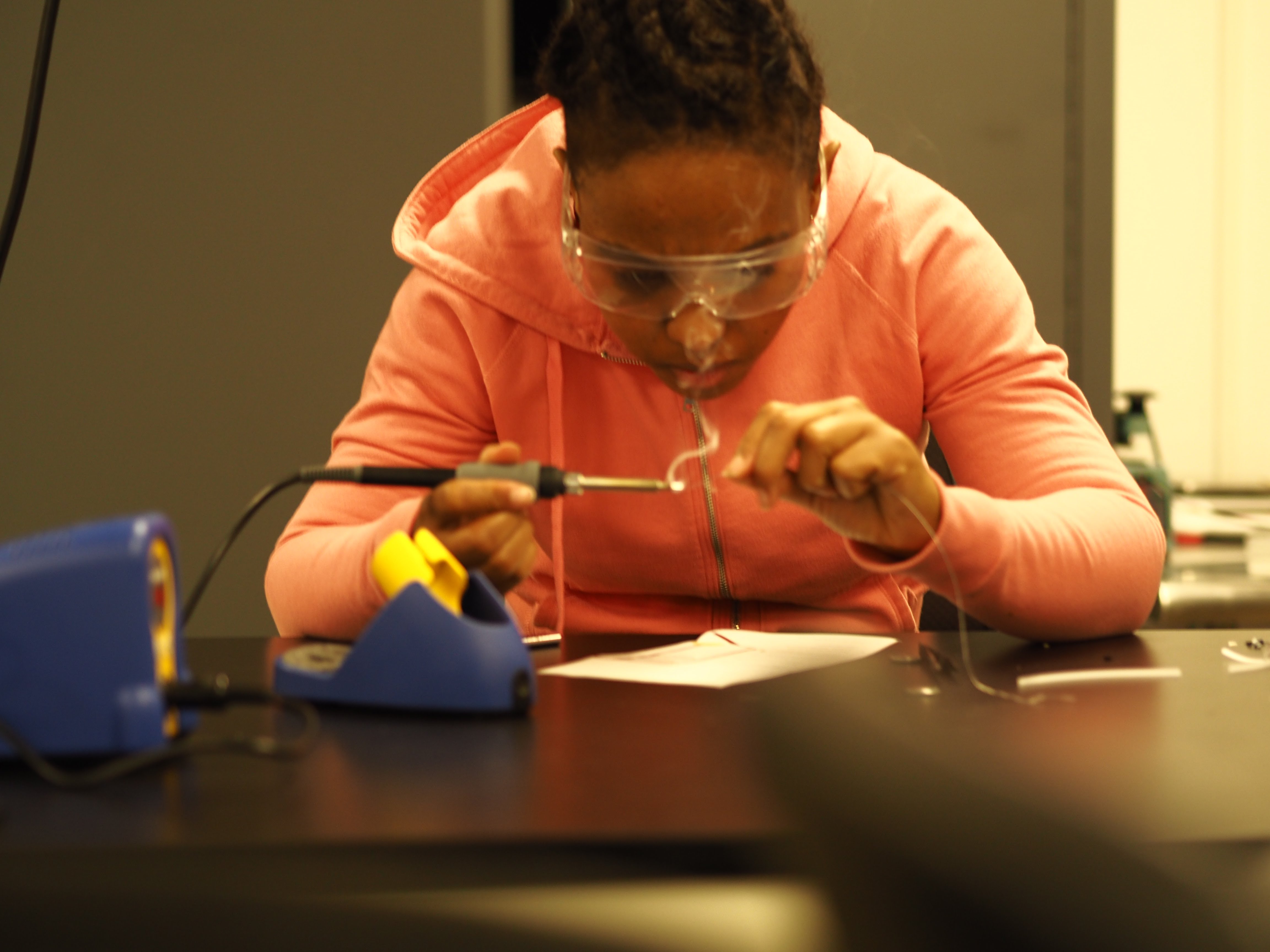SkyBayTech Electronics Technology
Apply NowSkyBayTech at Skyline College
Electronics Technicians are involved in the manufacturing, design, and repair of electronics. In the Bay Area, there are over 10,000 jobs for electronics technicians, with a 21% projected job growth of electronics technicians in the next ten years, with a median salary of $63,200.
The SkyBayTech Program at Skyline College
The SkyBayTech Program addresses the San Francisco Bay Area’s shortage for more and better prepared electronics technicians through the development of a new engineering electronics technology program leading students through stackable certificates and an associate of science (AS) degree.
Workforce Placement
The SkyBayTech Program features a Workforce Placement Program that connects students to paid part-time positions and summer internships with our industry partners, including: Stanford Linear Accelerator, ABX Engineering, SA Photonics, and other partners.
Skillsets
Graduates from the SkyBayTech program will received specialized training in:
- Electronics test and measurement
- Basic electronics fault diagnostics
- High quality soldering and rework
- Basic printed circuit board (PCB) design

Looking for a list of classes offered this semester?
Check out the current class schedule.Looking for all Electronics Technology courses?
To see all courses in Electronics Technology offered for the current academic year, view courses in the catalog.
| Program | Type | Total Units |
|---|---|---|
| Electronic Assembly and Fabrication | CS | 13 Units |
The Skyline College STEM Center brings together academic and student support services for students taking science, technology, engineering and math courses.
The center supports student success by ensuring students have access to resources such as academic tutoring, counseling services, a resource depository for STEM pathways and transfer, a hub for internships and work based learning opportunities, as well as a place where students and staff can collaborate and build a community and supportive connection.
Check out the STEM CenterUpon completion of the program students will be able to:
- Select and operate electronic test equipment during troubleshooting and repair operations, with an emphasis on safety in use and accuracy in results.
- Perform schematic entry, PCB layout, and circuit prototyping to design and manufacture an electronic product from conception to completion.
- Rework and repair circuit boards with through-hole and SMD parts including SOD, SOIC, SOT23, high pin count microprocessors, and passive components down to 0402 size.
- Effectively communicate with and advise customers and co-workers, both written and orally, regarding the progress of and decisions made concerning test and repair procedures.